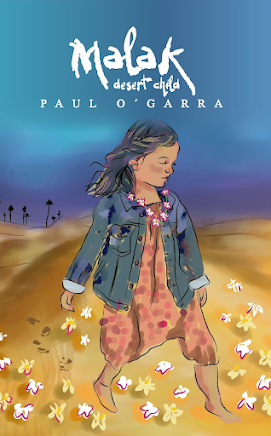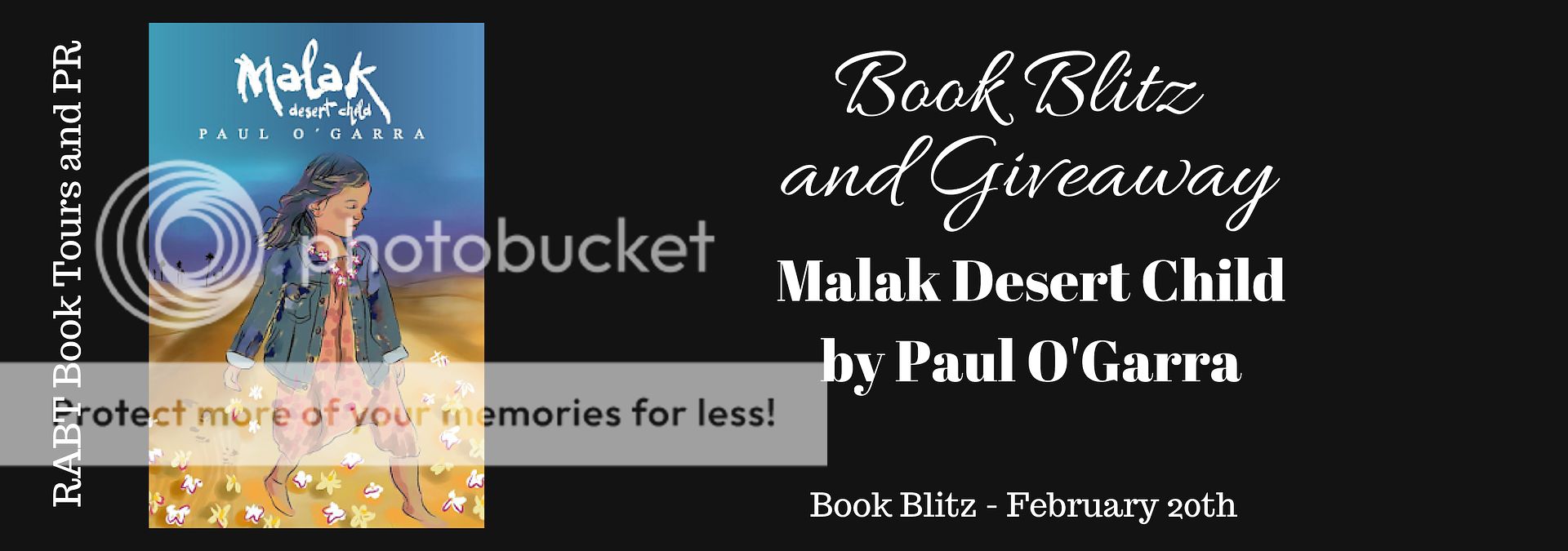
The Boy Who Sailed to Spain Book 2
Fiction
Date Published: January 19, 2019
A five year old girl-child living in poverty defends her family against the aggressive advances of a drunken and scheming father.
Set in the Moroccan and Algerian Sahara. Malak escapes with her family, to the Saharan birthplace of her mother Tanirt, guided and protected by a mysterious giant.
The feisty child has an unexpected effect on powerful people and becomes a mystically motivated catalyst in events that will have earthshaking consequences for the mysterious desert
Excerpt
Conscience and atonement
For a time he lived as he thought the Spartans had done, spending many days in the heat of the desert, still young and forever strong blooded suffering the harsh celibacy of monastic military life. Alone, alienated from the bulk of his troops, although as the months swept past, things changed as in a re-birth with a slowly growing handful of Zealots, inspired youngsters from his battalion who would share in his forced marches, and the self- abnegation which his life had become in the search for forgiveness purity and the emulation of those heroic ancestors of his nation and culture. His following grew as many young soldiers found in him a worthy cause, a leader an unyielding rock who taking the most basic and altruistic aspects of their Creed lived for them and by them, they not at the time realising that the entire experience of life of this young man was limited to his sojourn at home with his family and university and military academy training, and of course his reading, reading about the world and about his country, about his ancestors and heroes, his creed and about what the colonial powers had done to them for so long now.
The gruelling limits they would reach in their desert runs and mountain climbs were set by him, himself, Chenouali, he was known by that name. It seemed that he would daily try harder in his efforts to reach the limits of his strength and his disciples followed exhausted but unwilling ever to admit defeat even though to continue was for many of them sheer agony. Only one man kept his pace even though Chenouali refused to speak to him or even acknowledge his existence. The man was not even Algerian, to all he was known as the Russian and it was suspected that he was there because he had been sent , no one knew why or for what purpose, but he doggedly kept pace with the General on a day by day basis sleeping close to him as would a faithful dog. He was no dog however when it came to handling himself, being an extremely big man, fast and highly trained. He had been with the battalion for years now, and they had seen him kill many times and no one would look him in the eye or speak to him uninvited.
Then as an evening falls casting a bright red hue across the total width of the horizon the warriors kneeling in ritual worship of their God hear the sound of the choppers reverberating throughout the desert and slowly growing in intensity. The worshippers abandon their prayers, and rapidly they and their whole camp disappear swallowed up by the darkening desert as the red glow of the sun diminishes. The squadron approaches the exact area where the military nomads are known to have been according to their daily contact with battalion HQ. One large aircraft lands its whistling rotors creating a frenzy of sand in the desert night, the remaining two hovering, offering a protection a shield against all comers now that the whereabouts of their Liege Lord is patently apparent to any potential enemy. One man descends from the craft and once identified is taken, manhandled by swarthy figures that have appeared out of the sand. He is brought to Chenouali, and on his sign, they release him and withdraw into the shadows, only the Russian remains.
“General they are deserting, we cannot stop it, it´s growing like a cancer it´s widespread all over the country, the armed forces the Gendarmerie, it´s the killing sir. He just stood there like a statue hearing the words being spoken, digesting.
“It will be put down swiftly mercilessly.”
“General they have your family, your wife and your boys.” Just a groan his head dropped for an instance
“We leave now, “He looked up his face taut with emotion into the highboned poker face of the Russian.
“Y Állah.”
“Da vai.”
About the Author

Paul O´Garra was born in Gibraltar on the 8th May 1952. So many Gibraltarian people exiled by war to the Uk, and to further off, and more exotic places such as Madeira, French Morocco, Jamaica, and Northern Ireland, were returning on troopships, heavy with tears of nostalgia for a homeland which had been, and would never be again.
They, Paul and his three siblings were the children of schoolteachers and were reared with English discipline, learning romantic literature on the one hand, with a large local family of uncles, aunts, cousins and a doting grandmother, who was Spanish from Cadiz, on the other.
Childhood was spent roaming across the Up South, Rosia, and Europa point areas of Gibraltar engaging in childish games and adventures, reading extensively books such as Enid Blyton’ adventure series, ‘Famous Five,’ ‘Secret Seven,’ ‘Swallows and Amazons Forever,’ John Buchan and the ‘Gorbals Die-hards.’ Saturday mornings were a day for avoiding the displeased grimaces of monocled and overweight colonels, delving and searching through the shelves of the old Garrison library to discover new horizons, characters, and stories. The journey of discovery that had begun with Baba the Elephant eventually began to grow richer as the classics were devoured.
In 1967, he looked on as fellow students of Jewish persuasion prepare to leave for Tel Aviv to defend Israel. Shortly after, the arrival of General Moshe Dayan at the gates of Cairo, signaled to the world that Israel´s direst moment had been overcome. Paul, at the earliest time possible, set off in a steamer from Tangiers, sailing to Southampton. After a spell in London, he left the UK to discover his roots in Malta. In 1974 he wept with the crowds in the Athenian Coliseum the night the Colonels fell, and Nana Mouskouri sang a song to freedom, Verdi´s Nabuco. Later it was a case of returning to Gib. Only to fly away again to discover new places. He alternated callings as a tour guide of Morocco and recoverer of broken down rented cars in the desert, tour guide of south Spain and eventually running a flamenco club on the Costa del Sol, in the days when the Costa was still a new and exciting place to visit.
Eventually, he set off again to discover new places in the Middle and the Far East and the Philippines, and when Perestroika and Glasnost finally arrived at the hands of Mihail Gorbacheff and the Soviet Union was open, set off to discover the East there. He studied Russian at St Petersburg and spent time travelling to the Republic of Udmurtia, Kazan, Siberia and up an uncharted river to meet Tribes that still lived in the area. Nizhny Novgorod and the South Volga. Then to the Ukraine travelling from city to city, falling more and more in love with the great Russian writers and painters as he went. Seventeen years ago at the age of fifty, Paul contracted renal cancer. He was operated on successfully at the Bullfighters Hospital in Pamplona in North Spain. The operation had been a success as the tumour had been totally encapsulated within the removed kidney. Metastasis was practically impossible the surgeons happily reported. Two years later the cancer metastasised to his lungs on which he was duly operated, and half of his lungs were removed. Later for reasons undefined he suffered strokes in both eyes and lost partial sight in one eye and total in the left which he duly recovered by swimming and praying. Seventeen years have gone by since the renal cancer was first discovered, and seven years since his last operation and everything is fine, remission seems to be total.
Paul’s still swims at least one or two kilometres per day all year round, travels, practises martial arts and fervently believes that the Lord leads him by the hand. After leaving the hospital he spent some time in Tangiers, hairless, gaunt and on crutches, but enjoying the warmth and affection of many new friends there. Then off to Prague to study filmmaking, made several shorts but finally decided that he would first write and then make movies when the time came.
Contact Links
Purchase Links


thanks for hosting
ReplyDelete